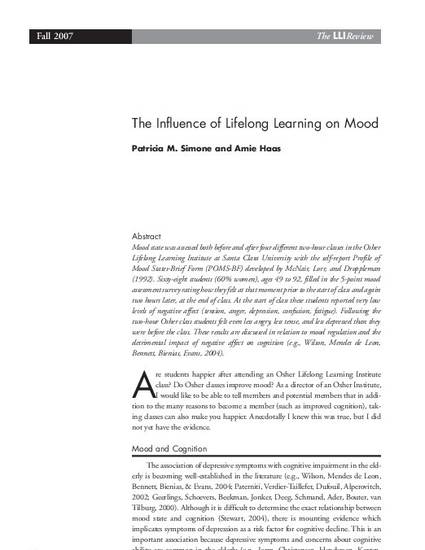
Mood state was assessed both before and after four different two-hour classes in the Osher Lifelong Learning Institute at Santa Clara University with the self-report Profile of Mood States-Brief Form (POMS-BF) developed by McNair, Lorr, and Droppleman (1992). Sixty-eight students (60% women), ages 49 to 92, filled in the 5-point mood assessment survey rating how they felt at that moment prior to the start of class and again two hours later, at the end of class. At the start of class these students reported very low levels of negative affect (tension, anger, depression, confusion, fatigue). Following the two-hour Osher class students felt even less angry, less tense, and less depressed than they were before the class. These results are discussed in relation to mood regulation and the detrimental impact of negative affect on cognition (e.g., Wilson, Mendes de Leon, Bennett, Bienias, Evans, 2004).

Copyright © 2007 Osher Lifelong Learning Institute. Reprinted with permission.